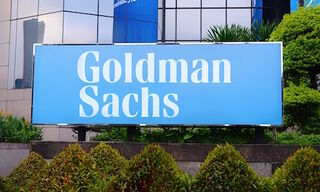WMPartners: Anatomy of a Downfall
Julius Baer put considerable resources towards making WMPartners a key player among independent asset managers. The Swiss private bank's has buried those plans. The story of why is a cautionary tale for Asia's burgeoning IAM industry.
The beginning of the end reach back before Julius Baer merged its Infidar subsidiary with Zurich-based independent asset manager WMPartners nearly four years ago.
Even before that, Infidar had struggled: revenue stagnated, while spending – especially on pay – was high. The unit faced two choices: cut costs or bring in new, profitable business.
Julius Baer did the latter, merging its asset manager subsidiary with rival WMPartners in 2013 to form one of Switzerland's largest independent asset manager. Infidar became WMPartners, a boutique with 40 employees and roughly 4 billion Swiss francs in assets.
Truly Independent?
The unit's new name and end of the Infidar brand was to avoid confusion with the French «infidèle,» or unfaithful – a prescient decision for an asset manager.
Shutting the door on the Infidar past entirely after WMPartners head Heiner Grueter had departed, Julius Baer executive Daniel Aegerter took the reins. His mission? Make WMPartners into Switzerland's largest independent asset manager.
But it proved hard to make the case with clients that WMPartners was a truly independent asset manager, given its ownership by Julius Baer – even if Aegerter insisted that the subsidiary made its own decisions on products and custody banks.
Little Distinction
WMPartners was missing a distinctive, unmistakable trait that clients wouldn't get at rivals. The boutique never managed to carve out enough of a niche for itself, remaining largely indistinguishable from the hundreds of independent asset managers in Switzerland.
Hardly surprising then that WMPartners soon began battling with considerable outflows of money. Today, the unit's assets stand at roughly 3.5 billion francs, despite recent poaching efforts including from Credit Suisse.
Deals No Fix
Acquisitions didn't fix the problem either: Julius Baer bought Geneva-based Fransad Gestion Wealth Managers (in German) for WMParters in 2015, then Zurich asset manager Wergen & Partner in February of this year. Taken together, two two institutes could add 1.9 billion francs to the boutique if clients stayed put.
WMPartners attempted to build a team out the three asset managers' cultures, which looks to have ultimately failed. While WMPartners' bankers were viewed as capable in their fields, it was an open secret that they were also difficult to unite behind a common purpose. For example, an investment committee's ideas were dismissed or ignored by the «front» of private bankers.
Turf Wars
Increasingly, WMPartners bankers resorted to an «every man for himself» strategy of protecting turf and benefits for as long as possible. Meanwhile, management was wary of disciplining the influential front faction, for fear of them defecting to rivals and taking clients with them.
Criticism of CEO Aegerter grew, with industry chatter openly speculating that he would eventually be replaced by Manfred Wergen, the founder and the CEO of the recently-acquired Wergen & Partner ersetzt. That never happened, nor will it after Julius Baer decided to bury WMPartners' brand.
Aegerter described WMPartners as a an experimental laboratory in a finews.com (in German) interview nineteen months ago. The experiment failed: Aegerter wasn't able to prevail against a deeply-entrenched culture and define a new one. It remains for Julius Baer to salvage the pieces.




























